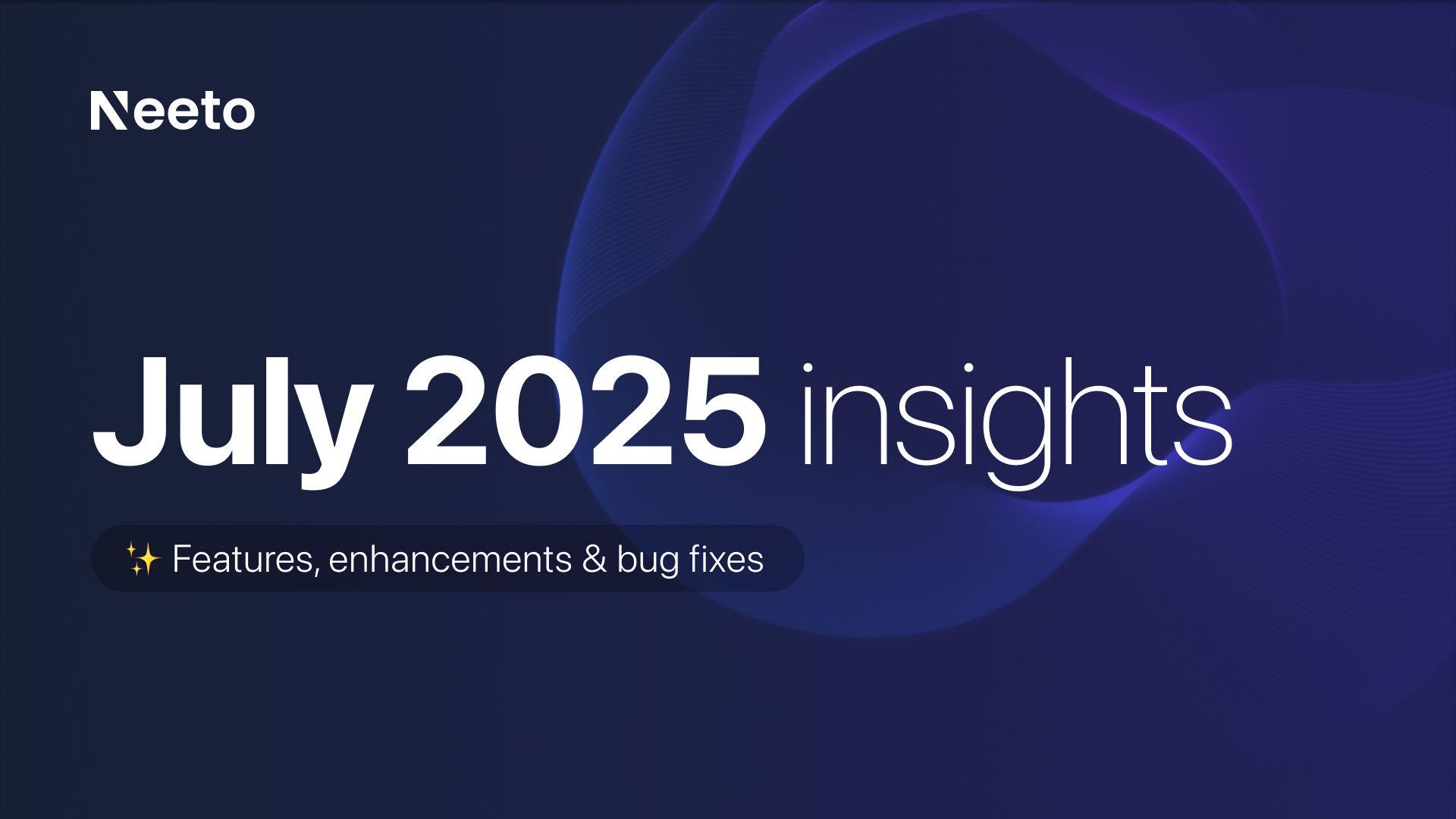July 2025 updates - Google sheet integration, add tips and more

July 31, 2025

Let’s go through what we got done in July 2025 in NeetoCal.
New feature ✨
✅ Google sheet integration
Your bookings now sync directly to Google Sheets. Each scheduling link has its sheet, and new bookings are added automatically with all details. If you update the booking form, the sheet updates too, new columns get added without any manual work.
✅ Add tips while making payment
Now you can allow your clients to include a tip during the booking payment process, optionally. This is especially useful for service-based businesses where clients may want to show appreciation for great service.
✅ Popular channel report
You can now track which platform brings in the most bookings. Just configure a custom key like ?source=Instagram and add it to your scheduling link. The Popular Channels report will then show bookings by channel.
✅ Customising the reminder email for different reminders
Customise your reminder emails based on when they’re being sent. Customise the email for a 1-day reminder, 1-hour reminder, or anything in between to keep your communication on point and personal.
✅ Send calendar invitation to anyone
You can now automatically send a calendar invite to any email address using automation rules. For example, you can notify an interviewer when a candidate books a meeting, loop in an assistant, or invite a co-host, all without manual effort. Everyone stays informed, and the event is added to their calendar instantly.
✅ Disable email notifications
NeetoCal sends automatic emails for confirmations, reminders, cancellations, and more. But if your team prefers to handle emails through custom workflows, using tools like Zapier, Make. You can now selectively turn off these notifications. This gives you full control over how and when emails are sent to hosts and clients.
Enhancements ✨
✅ Ability to change the frequency of recurring meetings
You’re no longer limited to weekly repeats. With the new update, you can set recurring meetings to repeat biweekly, monthly, or at any custom frequency that fits your workflow.
✅Add complete UPI transaction ID
Clients paying via UPI will now be required to enter the complete transaction ID during the payment process. This ensures better traceability of payments, making it easier to verify transactions and provide faster support in case of any payment issues or disputes.
✅ Customizable time exclusions in Outlook/Microsoft 365 calendar
Previously, NeetoCal only excluded "Busy" time slots from your Outlook calendar. Now, it also excludes events marked as "Away," "Tentative," or "Working Elsewhere." You can choose which one to exclude, keeping your availability accurate and fully under your control.
✅ Email notifications from your connected Gmail account
Previously, only your clients received emails from your connected Gmail account. Now, hosts will also get notifications from the same account, ensuring consistent and professional communication on both ends.
✅ Cancellation of past meeting
You can now cancel meetings that have already past, right from your dashboard. This makes it easier to trigger follow-up actions like sending a feedback request or simply keeping your records up to date.
✅ Locale‑based payment page
Now the payment page automatically adapts to your client’s locale, showing language and date formats they understand and making the payment process easier and clearer for them.
✅ Notify everyone when guests are added after booking
You can add guests to a meeting even after it’s been booked, and now NeetoCal will automatically send email notifications to the host, client, and any newly added guests, ensuring everyone has the latest meeting details and nothing slips through the cracks.
✅ Edit name and email of a contact
You can now update a contact’s name and email directly from the dashboard. Whether it was a typo or placeholder info during booking, you no longer need to cancel and rebook, just make the changes and you’re good to go.
✅ Add notes next to package duration
You can now add notes next to the package duration to help customers understand how the total time is distributed. For example, if the package duration is 10 hours, you can add a note like “10 sessions, 1 hour each” to make it clear how many sessions they can book. This helps set clear expectations and avoids confusion during booking.
✅ Default permission for the standard role
Earlier, new users with the Standard role had no permissions by default. Now, they can manage any scheduling link where they’re the host, making it easier for them to get started.
Say goodbye to scheduling headaches —
ready to get started?
Let's get started now.